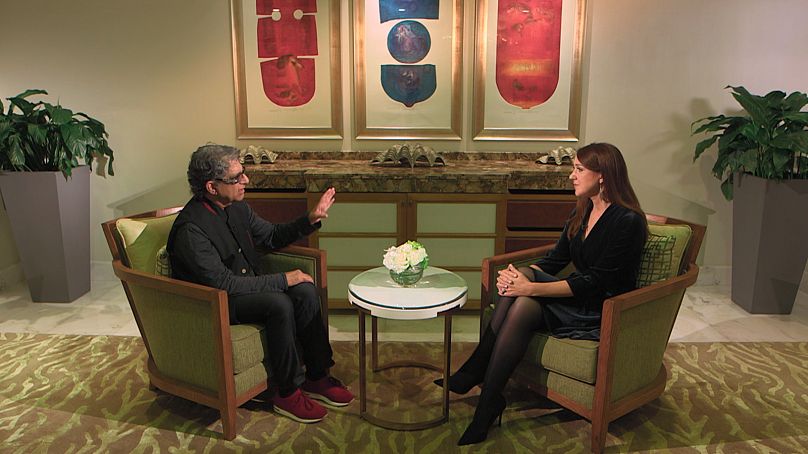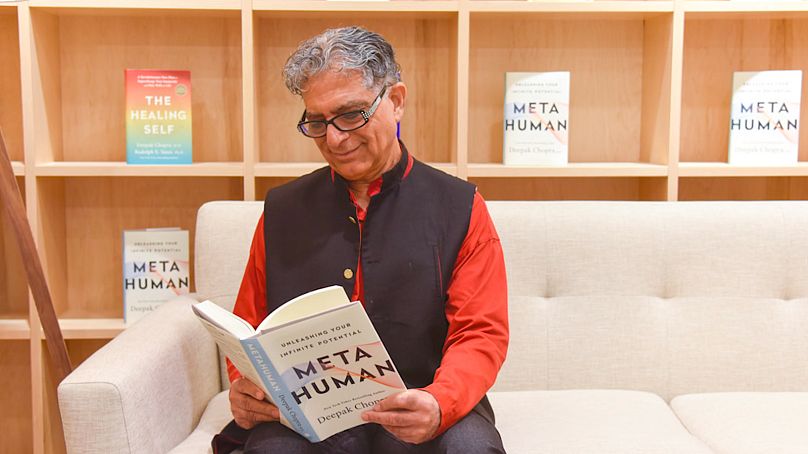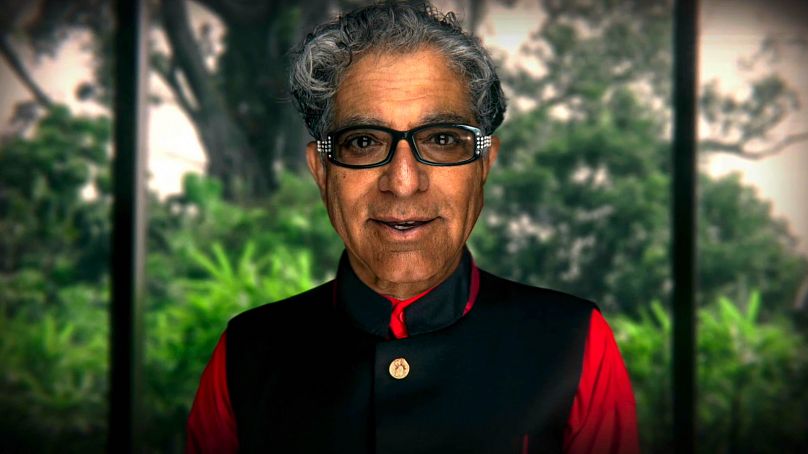For decades, 73-year-old Deepak Chopra has extolled the health benefits of spiritual practices.
For decades, 73-year-old Deepak Chopra has extolled the health benefits of spiritual practices.
The Indian-American’s pursuit of mental health, happiness and holistic wellness has culminated in the publication of more than 90 books, including the bestseller, The Seven Spiritual Laws of Success.
He’s best-known for advising people how to live beyond their limitations through finding pathways to higher consciousness, and his philosophy for life is that, “joy is the birthright of being human.”
“At a certain stage in our lives, to wake up from the hypnosis of social conditioning. And find our own creativity, our calling, our desire for transcendence and love. That’s why we’re here,” Chopra told Rebecca McLaughlin-Eastham of Inspire Middle East.
The guru’s teachings and practices have made him one of the wealthiest figures in alternative medicine and amongst his celebrity clients are the designer Donna Karan, the actress Lucy Lui and pop star Madonna.
Chopra says his clients often face similar life challenges which they are seeking his advice to resolve.
“Most people have problems with conflict,” he says. “So, it's very important for everyone to ask themselves, ‘Who am I? What is my purpose? What do I really want from my life? What am I grateful for at this moment?’ Because if you are grateful for existence, in this moment, you can't have hostility. It’s impossible.”
In his book ‘Metahuman’, Chopra touches upon consciousness and how to achieve new levels of daily awareness. The author estimates that less than one percent of people are currently living in a mindful or enlightened state. A daily practice he recommends to get closer to attaining mental peace goes by the acronym S.T.O.P.
“’S’, stands for stop. ’T’, is take three deep breaths and smile. ‘O’, means observe what's happening around you and inside you. And ‘P’, is to proceed with compassion and awareness.” he says. “Press the pause button for a moment in your life. Observe yourself and your reaction to react all the time.”
Digital Deepak
Chopra’s ambition is for his legacy to live on for centuries to come. His aim is to have a positive impact on seven billion people around the globe, via the creation of an AI clone giving virtual advice.
“It's called Digital Deepak and you can actually have a conversation with him, if you want,” he says with a smile. “It learns from your interaction, and one day, it will be speaking to the grandchildren of the grandchildren, of the grandchildren of my grandchildren, and learning from them. It will continue to evolve and learn.”
Chopra is hopeful his technological venture will provide words of wisdom and calm in what he views as turbulent times.
“Look at the world right now,” he says. “Climate change, nuclear weapons, biological warfare, internet hacking of democracies. Hatred, prejudice, ethnocentrism, fear. It's right in our face. We’re looking at collective extinction and we are totally in denial.”
SEEN ON SOCIAL MEDIA: MENA MINDFULNESS
Ricardo from the US shared this photo of him meditating in the UAE desert, to show the importance of mindfulness and spiritual practices.
Dana from Lebanon recorded her breathing exercises, saying moments of reflection like these are a journey to inner peace.
With contribution from Nancy Sarkis, Ana De Oliva and Nicolas Tabbal.














